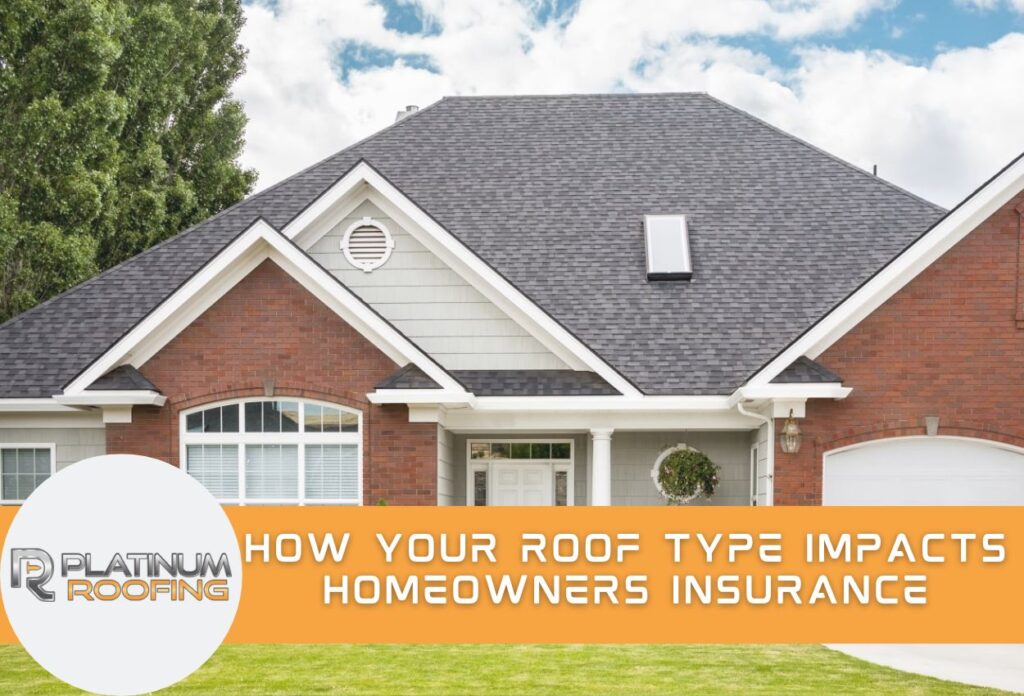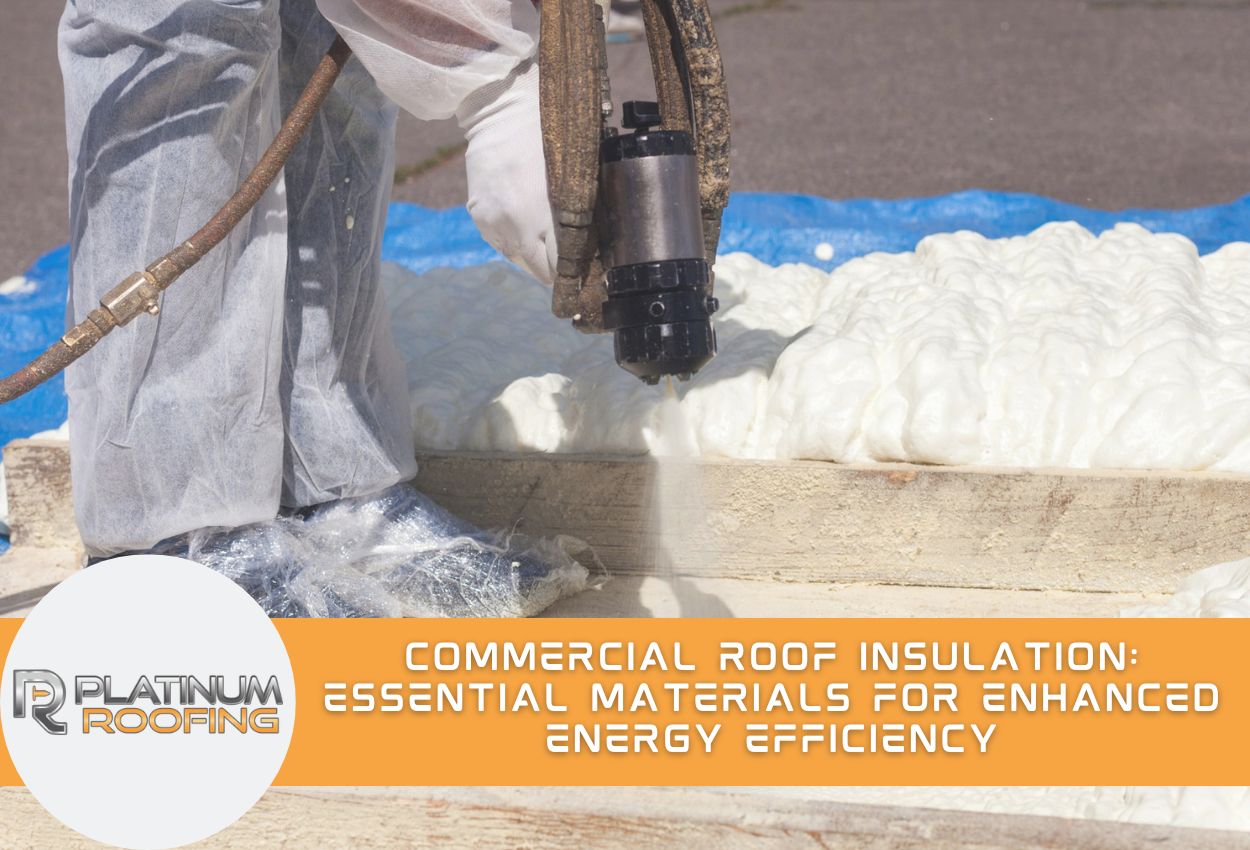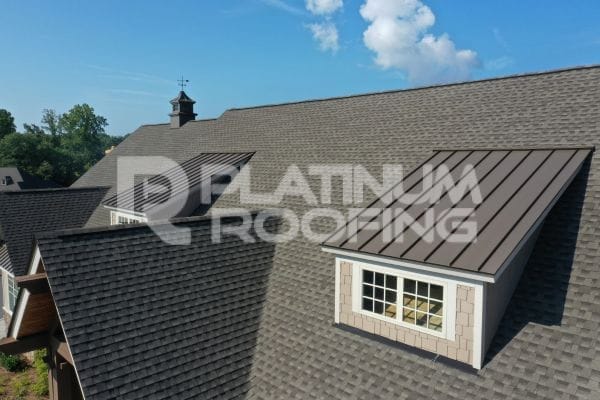How Your Roof Type Impacts Homeowners Insurance: What Georgia & Alabama Homeowners Should Know

For homeowners in Georgia and Alabama, understanding how roof types affect insurance premiums isn’t just helpful — it’s essential. Your roof is your home’s first line of defense against the region’s intense summer heat, hurricane-force winds, and hailstorms. Insurance companies recognize this when calculating your coverage and rates.
All roofing materials have different levels of protection, durability, and resistance to weather damage. Metal roofs, for example, typically withstand hail better than traditional asphalt shingles, which can translate to potential insurance discounts. Similarly, the age of your roof plays a significant role in determining coverage eligibility and premium costs.
Insurance providers evaluate roofs based on several factors, including material type, installation quality, current condition, and age. In regions prone to severe weather like Georgia and Alabama, these assessments become even more strict. Some insurance companies may even refuse coverage for homes with roofs older than a certain age or made from materials considered vulnerable to local weather patterns.
When homeowners understand these insurance considerations before making roofing decisions, they can potentially save thousands over time. The right roof not only protects your home physically but can also shield your finances through optimized insurance coverage and reduced premiums.
How Insurance Premiums Change for Different Roofing Materials
Insurance companies carefully assess roofing materials when determining homeowners insurance premiums, especially in the Southeast, where weather extremes are common. Each material carries risks that directly impact what Georgia and Alabama homeowners pay for coverage.
Asphalt shingles, while affordable and common throughout the Southeast, typically receive middle-range insurance ratings due to their moderate durability (15 to 30 years) and fair weather resistance. Metal roofs, which are popular in Georgia and Alabama, often earn homeowners insurance discounts of up to 25% because of their superior durability, excellent fire resistance (Class A rating), and high performance during high winds and hailstorms.
Tile and slate roofs are also favorable for insurance providers because of their exceptional longevity (over 50 years) and superior fire resistance, potentially qualifying homeowners for premium reductions. However, their weight requires proper structural support. Wood shakes and shingles, while aesthetically pleasing, typically result in higher premiums due to increased fire vulnerability unless specially treated.
Insurance assessors evaluate these materials based on impact resistance ratings (from Class 1 to Class 4), fire ratings (Class A through C), wind uplift resistance, and overall durability. Homes with Class 4 impact-resistant roofing materials often qualify for significant premium discounts, making material selection an important financial decision beyond just curb appeal.
Roof Age and Its Effect on Insurance Coverage
As roofs age, their ability to protect homes diminishes — a reality that insurance companies factor heavily into coverage decisions. In Georgia and Alabama, where severe weather is common, the age of your roof significantly influences both insurance availability and claim payouts. Most insurance providers begin implementing coverage limitations once a roof exceeds 15 to 20 years, regardless of its apparent condition.
For homes with older roofs, insurance companies typically apply depreciation calculations during claims processing. Rather than covering full replacement costs, insurers may only pay the depreciated value of an aging roof. For example, a 20-year-old asphalt shingle roof that originally had a 25-year lifespan might only receive 20% of replacement costs in a claim settlement.
Georgia and Alabama building codes have specific requirements that impact insurance considerations. These codes mandate certain roofing standards that older installations may no longer meet, potentially affecting coverage eligibility. Some insurance providers in these states have even begun requiring roof inspections for homes with roofs over 10 years old before issuing or renewing policies.
Homeowners should consider roof replacement when their roof reaches 80% of its expected lifespan to maintain optimal insurance coverage. This ensures your home will have continued protection and prevents policy exclusions or significantly higher premiums due to roof age. Professional roofing contractors can provide assessments to help determine when replacement makes the most financial sense.
Weather Resistance: How Your Roof Handles Southern Storms
When severe weather strikes, your roof type can mean the difference between minor repairs and catastrophic damage, directly impacting insurance claims and future premiums. Asphalt shingles, the most common roofing material in our service area, offer adequate protection against moderate storms but can suffer significant damage during high winds exceeding 60 mph.
Metal roofing systems demonstrate superior performance during hurricanes and severe thunderstorms, withstanding winds up to 140 mph when properly installed. This exceptional wind resistance often translates to lower insurance claims frequencies and potential premium discounts.
Hailstorms pose another significant threat to Georgia and Alabama homes. Standard asphalt shingles typically carry Class 2 or Class 3 impact ratings, while impact-resistant varieties and quality metal roofing systems often achieve the coveted Class 4 rating, the highest level of protection. Insurance companies recognize these differences, frequently offering reduced premiums for homes with superior impact-resistant roofs that can withstand golf ball-sized hail without significant damage.
For homeowners in high-risk areas, investing in a storm-resistant roof often pays off through reduced insurance costs and fewer claim-related headaches. These systems not only protect your home during severe weather but also provide valuable peace of mind during storm season.
Metal vs. Shingle Roof Insurance Discounts
When comparing metal and asphalt shingle roofs from an insurance perspective, Georgia and Alabama homeowners may see significant differences in coverage benefits. Metal roofs typically qualify for premium discounts ranging from 5% to 35% with many insurance carriers due to their superior durability and resistance to fire, wind, and impact damage. Asphalt shingles, while initially more affordable, generally earn more modest discounts of 5% to 10% when new and properly installed.
Insurance companies tend to favor metal roofs’ 40 to 70-year lifespan compared to asphalt’s typical 15 to 30 years. This longer lifespan means fewer replacement claims over time. Many insurers also offer replacement cost coverage for metal roofs for longer periods, whereas asphalt roofs often transition to actual cash value coverage more quickly as they age and depreciate.
The financial equation becomes more favorable in high-risk weather zones throughout Georgia and Alabama. While metal roof installation costs more initially, many homeowners recover this investment through decades of insurance savings. Additionally, metal roofs often require fewer claims due to their resistance to wind and hail damage, helping homeowners avoid deductible expenses and potential premium increases following claims.
For maximum insurance benefits, homeowners should request documentation of their roof’s wind and impact ratings from their roofing contractor, as these certifications are often required to qualify for premium discounts.
Insurance Requirements for Roof Replacements and Repairs
Insurance requirements for roof replacements and repairs can be confusing for Georgia and Alabama homeowners. Insurance companies have specific criteria that must be met to ensure coverage and claim approval. Understanding these requirements before beginning any roofing project can save considerable time, money, and frustration.
Most insurance providers require detailed documentation before approving roof replacement claims. This typically includes comprehensive damage assessments, photographs, and itemized estimates from qualified roofing contractors. In Georgia and Alabama, insurers often require contractors to be licensed, bonded, and insured with appropriate workers’ compensation coverage and liability insurance.
Material durability is another consideration to keep in mind. Many insurance companies now mandate impact-resistant shingles (Class 3 or 4) in areas frequently affected by hailstorms. For metal roofing systems, specific wind ratings are often required to ensure the roof can withstand local weather conditions. These specifications must be documented in writing during the claims process.
The claim process itself generally follows these steps: filing the initial claim, scheduling an adjuster inspection, reviewing the settlement offer, selecting a qualified contractor, and completing the work according to insurance specifications. Working with roofing professionals significantly increases your chance of approval. Experienced contractors can help identify damage that adjusters might miss and ensure all issues are documented.
Maximizing Your Roof’s Insurance Benefits in the Southeast
Southeast homeowners have opportunities to leverage their roofing choices for substantial insurance benefits. In Georgia and Alabama, where severe weather frequently tests home resilience, strategic roof maintenance and material selection can translate directly into lower premiums and better coverage terms. Insurance companies recognize homes with weather-resistant roofs as lower-risk investments, creating financial incentives for proactive homeowners.
Regular professional roof inspections from qualified contractors can document your roof’s condition, helping maintain insurability and preventing surprise coverage issues. Many insurance providers offer significant discounts for roofs with documented maintenance programs. These inspections also create valuable documentation that strengthens your position should you need to file a claim.
Working with roofing contractors who understand regional insurance requirements is another advantage. These professionals can recommend specific upgrades that qualify for insurance discounts while enhancing your home’s protection. For instance, installing hurricane straps or clips during roof replacement can reduce premiums by improving wind resistance ratings. Similarly, choosing impact-resistant materials can qualify homeowners for hail damage discounts while providing superior protection.
Your roofing contractor should be able to provide documentation certifying your roof’s wind and impact ratings, which is essential for claiming available insurance discounts. This partnership between the homeowner, contractor, and insurer creates a win-win situation where your home gains protection while your insurance costs decrease.
Trust Platinum Roofing for Your Roofing Needs in Georgia and Alabama
Understanding the impact of your roof type on homeowners insurance is crucial for residents in Georgia and Alabama. Different materials can significantly affect your insurance premiums, coverage, and the ease of handling claims, especially in the Southeast. Whether you’re considering a new installation or assessing your current roof, knowing these details can lead to substantial savings and improved policy terms.
Platinum Roofing specializes in residential roofing services, from repairs to complete replacements and thorough inspections. With our expert knowledge on how various roofing materials like metal and asphalt shingles influence insurance premiums, we can help you make the best choice for your home and your wallet.
Call us today at (229) 561-3107 to schedule an inspection and ensure your roof is optimized for both safety and insurance benefits.





